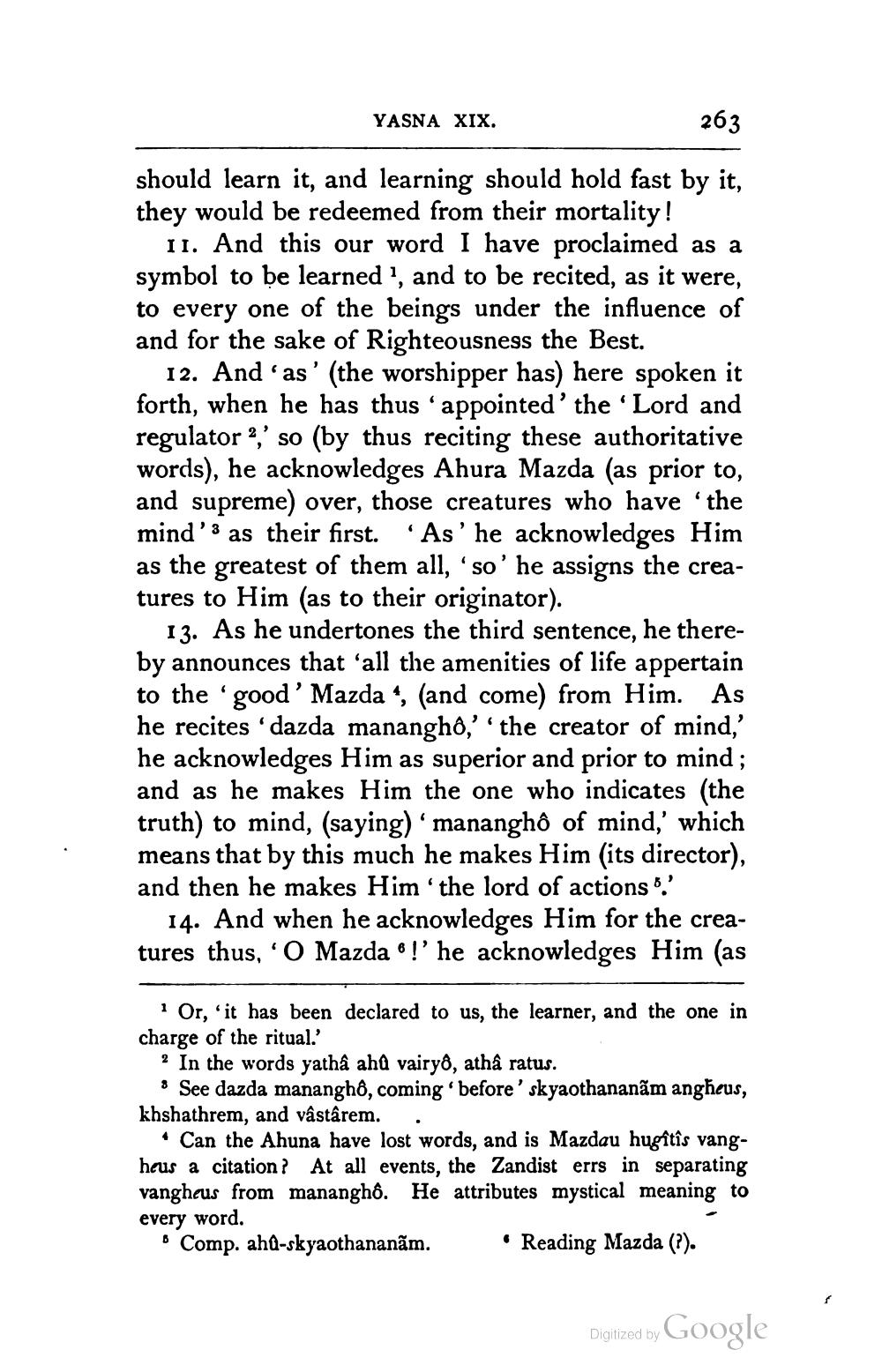________________
YASNA XIX.
263
should learn it, and learning should hold fast by it, they would be redeemed from their mortality!
11. And this our word I have proclaimed as a symbol to be learned !, and to be recited, as it were, to every one of the beings under the influence of and for the sake of Righteousness the Best.
12. And as' (the worshipper has) here spoken it forth, when he has thus ‘appointed' the 'Lord and regulator ?,' so (by thus reciting these authoritative words), he acknowledges Ahura Mazda (as prior to, and supreme) over, those creatures who have the mind's as their first. “As' he acknowledges Him as the greatest of them all, so'he assigns the creatures to Him (as to their originator).
13. As he undertones the third sentence, he thereby announces that all the amenities of life appertain to the 'good' Mazda“, (and come) from Him. As he recites dazda mananghô,''the creator of mind,' he acknowledges Him as superior and prior to mind; and as he makes Him the one who indicates (the truth) to mind, (saying)'mananghô of mind,' which means that by this much he makes Him (its director), and then he makes Him the lord of actions.'
14. And when he acknowledges Him for the creatures thus, O Mazda 6 !' he acknowledges Him (as
Or, it has been declared to us, the learner, and the one in charge of the ritual.'
? In the words yatha ahở vairyo, atha ratus.
* See dazda mananghô, coming before 'skyaothananãm angħeus, khshathrem, and vâstârem. .
• Can the Ahuna have lost words, and is Mazdau hugîtîs vangheus a citation? At all events, the Zandist errs in separating vangheus from mananghô. He attributes mystical meaning to every word.
• Comp. ahd-skyaothananām. • Reading Mazda (?).
Digitized by Google
Digitized by




